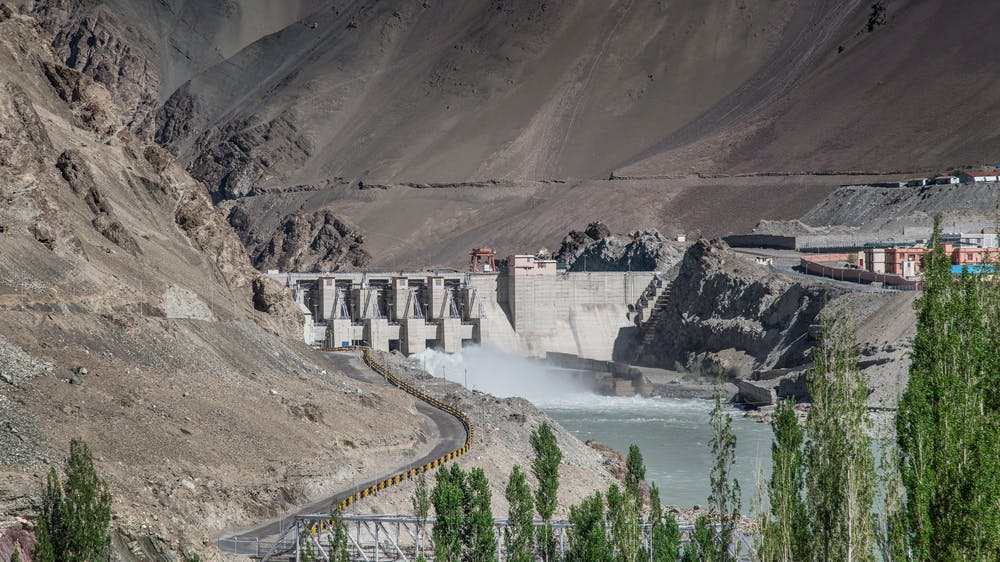Source : DNA INDIA NEWS
In a no-holds-barred rebuke to Islamabad while addressing the countrymen on Monday evening, PM Modi made in clear in the most unambiguous terms that India would not reconsider its decision of putting the Indus Waters Treaty in abeyance in spite of the ceasefire.
Indus River (Representative Image)
In what may be called a strong signal to Pakistan that may force it to change its stand, Prime Minister Narendra Modi rebuffed Pakistan on the Indus Waters Treaty. In a no-holds-barred rebuke to Islamabad while addressing the countrymen on Monday evening, PM Modi made it clear in the most unambiguous terms that India would not reconsider its decision of putting the Indus Waters Treaty in abeyance in spite of the ceasefire. He said, “Blood and water can not flow together.”
Indus Waters Treaty in abeyance
Immediately after the Pahalgam terror attack, India announced it would put the Indus Waters Treaty in abeyance. However, it was not a knee-jerk reaction, as New Delhi had earlier asked Islamabad to reconsider the treaty. But, instead of taking the initiative for talks on sharing river water, Pakistan threatened to move the World Bank.
What is Indus Waters Treaty?
Brokered by the World Bank, the Indus Waters Treaty is a water-sharing agreement signed by India and Pakistan on September 19, 1960. The agreement details the use of six rivers flowing through the two countries. While Pakistan got the administration of the Western Rivers, the Indus, Jhelum, and Chenab, India was authorized to control the Eastern Rivers of the Ravi, Beas, and Sutlej. The Indus Waters Treaty has been criticized several times for allocating almost 80%, or 135 million acre-feet, or 167 billion cubic meters of the Indus system’s water to Pakistan and 20% or about 33 million acre-feet or 41 billion cubic meters of water to India.

How will it impact Pakistan?
As Pakistan is heavily dependent on the Indus Water System for 80% of its irrigated agriculture in Punjab and Sindh, the suspension of the treaty is most likely to hit it hard. The approaching summer season and the subsequent cultivation period may be especially harsh for Islamabad. If India releases water from the reservoirs constructed on the Western rivers, flash floods can ravage low-lying areas in Pakistani Punjab along the Ravi or Sutlej. Pakistan suffered a devastating flood in 2022, and it had to declare an emergency and appeal to the international community for help.

With the suspension of the Indus Waters Treaty, India will no longer be restricted in using the Indus, Jhelum, and Chenab. India can construct dams and reservoirs on these rivers, which would adversely impact Pakistan. However, it will take years and massive investment, so it will not have an immediate impact.
How will it impact India?
As the Indian side of Punjab is heavily dependent on the Eastern Rivers of the Ravi, Beas, and Sutlej for irrigation and hydropower, its projects like the Bhakra Dam (Sutlej), Pong Dam (Beas), Thein Dam (Ravi), and the recently completed Shahpurkandi Barrage (Ravi) will be in an advantageous position as these can use more water. Punjab will also get more benefits from the Indira Gandhi Canal and the Sirhind Canal for agriculture.

Jammu and Kashmir, where the heinous attack took place, are not exposed to the Indus Waters System to a large extent. It irrigates only 642,000 acres out of a permitted 1.34 million acres. Similarly, hydropower projects like Kishenganga (Jhelum tributary) and Ratle (Chenab) are designed to minimize water storage and flow alteration. The Tulbul Hydroelectric Project on the Jhelum has been stalled for a long time due to Pakistan’s objection. Islamabad can become more rigid, and the project may remain stalled.
Impact on ecosystem, climate
If India decides to harness the Indus, Jhelum, and Chenab by altering its flow, it could disrupt aquatic ecosystems and the Harike Wetland in Punjab. Climate change has already threatened long-term water security with the melting of glaciers like never before in the Indus Basin, which is already considered the world’s second-most overstressed aquifer.
International Relations
The Indus Waters Treaty has been considered a template for the common use of rivers in Southeast East Asia. Now countries like Bangladesh and Nepal, which share rivers with India, may become suspicious, and they may bargain hard in any future water deal with New Delhi.
Though the immediate impact of the suspension of the Indus Waters System is limited, it carries the risks of flooding, ecosystem damage, interstate disputes, and geopolitical fallout, including potential escalation with Pakistan and strained relations with other neighbors. On the other hand, the long-term water security in both regions remains threatened by climate change and aquifer stress.
SOURCE : DNA NEW







